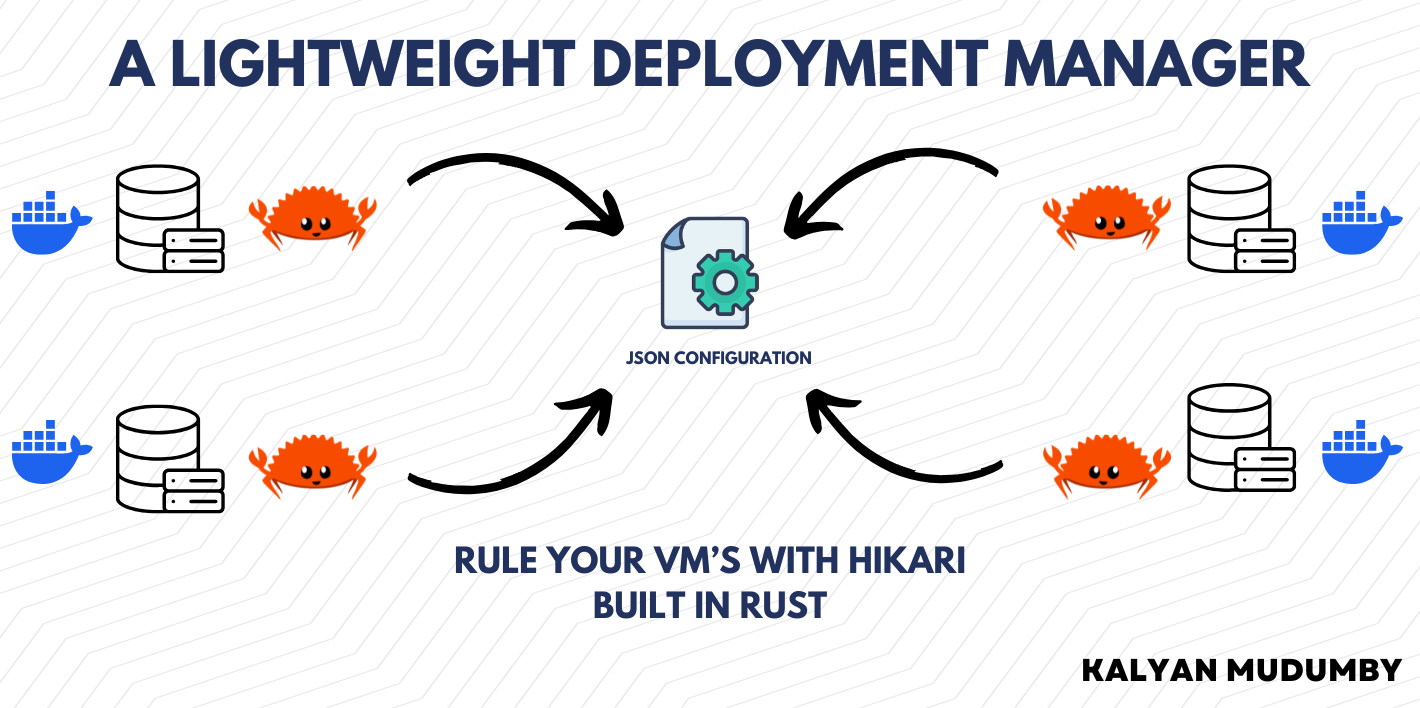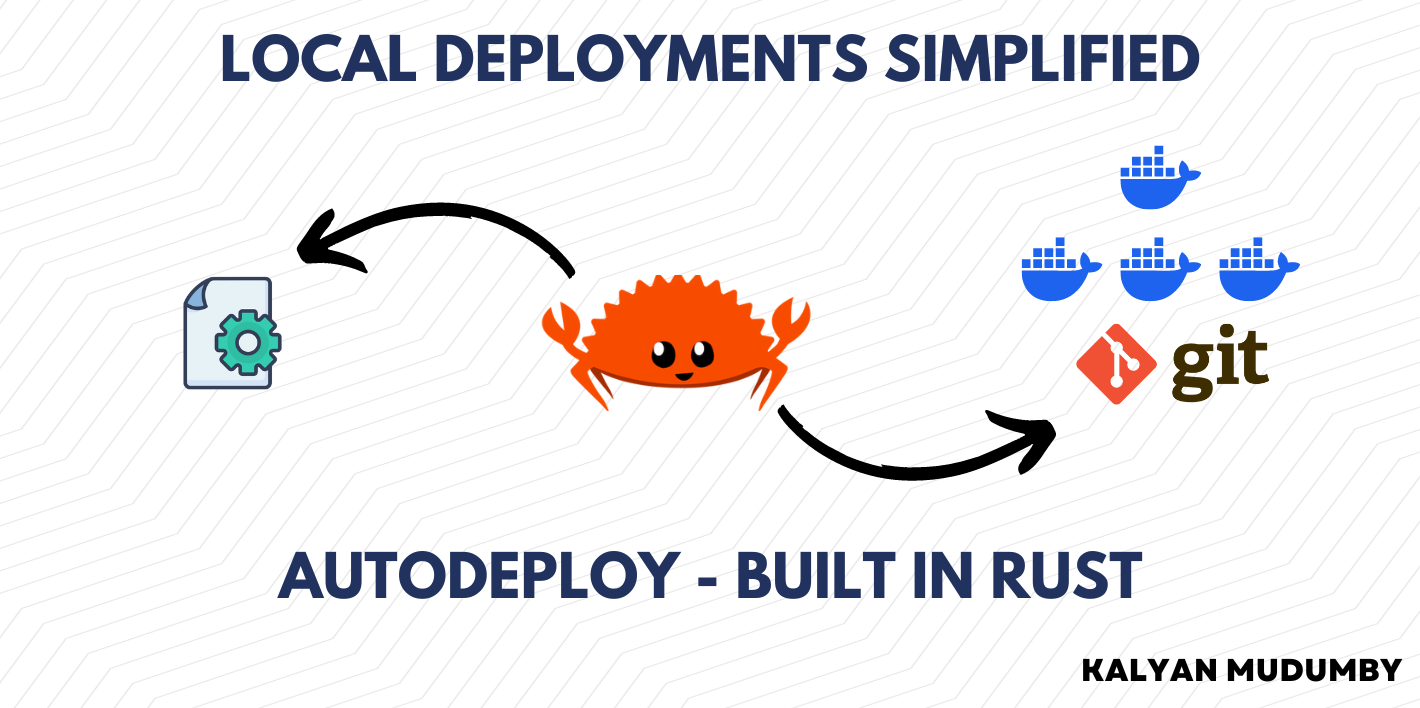
Hikari- Lightweight Deployment Manager Built for the cloud
In the complex and ever-evolving world of cloud deployments, efficiency is key. Enter Hikari, a lightweight deployment manager purpose-built for cloud environments. Designed to minimize resource consumption, Hikari is a smart, efficient solution that you might need. What is Hikari? Hikari is a daemonic application that operates as an agent on virtual machines. Its primary function is to streamline deployments by regularly checking for updates in a remote configuration file and applying only the necessary changes. This precision ensures your deployment remains up-to-date without unnecessary overhead. ...

Autodeploy- Configurable Git & Docker Deployments
Why Autodeploy? In a fast-paced environment where multiple teams push new code to add functionality and integrate with other components, the feedback loop should be quick. This promotes rapid testing and iteration, helping us release our product to market as soon as possible. While building and deploying applications in the cloud can be quick, it often comes with unnecessary costs. Building in a local environment has several advantages: No fear of failure, encouraging the confidence to fail fast Connection to the local intranet Cost savings from using on-premises machines for compute rather than cloud resources Autodeploy is a drop-in replacement for a bash script that previously managed local deployments on a Linux server. ...

Cloudflare Tunnels - Installing and Setting up our first tunnel
In the past few months, I have been interested in making a small home lab, trying out some self-hosted services on my Raspberry Pi 4, and occasionally hosting some of my projects. Some of the most popular self-hosted applications that I use are: Nextcloud - Alternative to Cloud Storage Services Jellyfin - A Home Media Server with awesome features A Visual Studio Code Server But to do all of this and access my applications remotely, I need ...